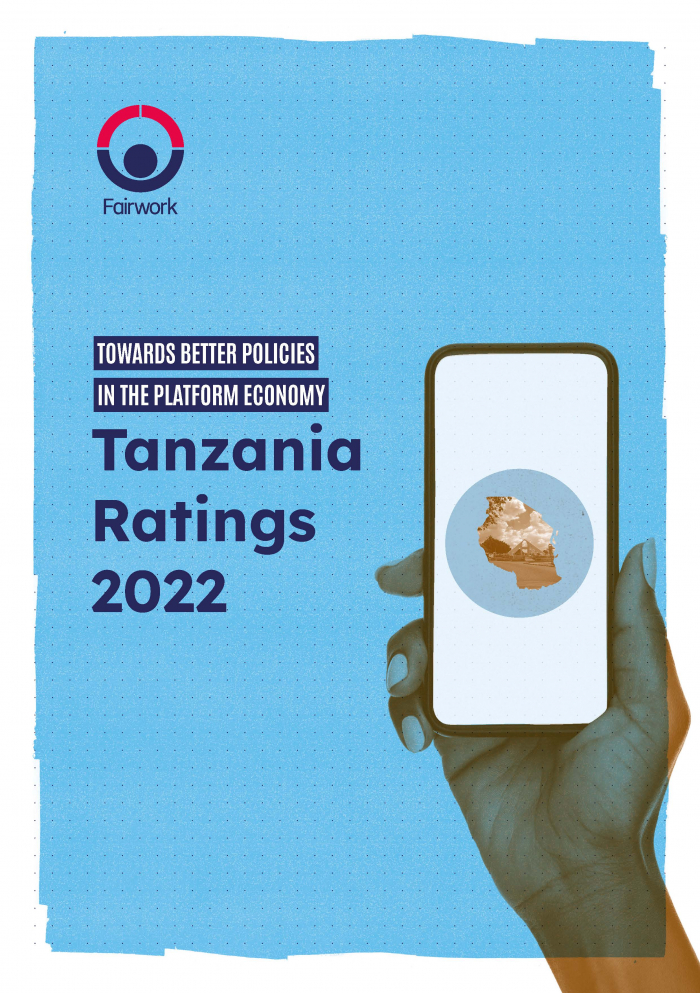This website uses cookies so that we can provide you with the best user experience possible. Cookie information is stored in your browser and performs functions such as recognising you when you return to our website and helping our team to understand which sections of the website you find most interesting and useful.
Fairwork Tanzania Ratings 2022: Towards Better Policies in the Platform Economy


While the platform economy seems to be thriving in many African countries, based on levels of customer usage and the flexibility of self-employment for platform workers, the precarious nature of the industry is problematic for workers and policymakers in Tanzania.
Most platforms treat platform workers as contractors or independent consultants, eroding their social security rights. Thus, even though platforms provide temporary self-employment for platform workers, they are likely to exacerbate precarity and retard the continent’s efforts to achieve decent jobs for all by 2030. The nature of platform work necessitates the need among stakeholders, including policymakers and collective worker bodies, to hold platforms accountable.
This is the first Fairwork Tanzanian report which provides an understanding of the impact of the platform economy, focusing on the legal and regulatory framework. The report assesses six platforms operating in Tanzania – Bolt, FixChap, Little Ride, Paisha, Piki, and Ping – against five principles of fairness: fair pay, fair conditions, fair contracts, fair management, and fair representation, giving each platform a rating out of ten. Few Tanzanian platforms could demonstrate compliance with Fairwork principles in this first scoring round.
